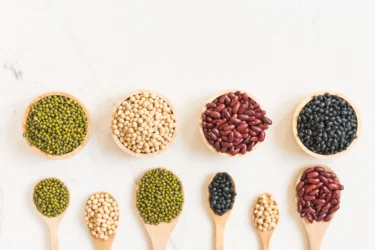13 Foods That Are Difficult To Digest!
By Mansi Shah +2 more

Get,

to manage your symptom
Get your,


4 Cr+ families
benefitted

OTP sent to 9988776655



You’ve successfully subscribed to receive
doctor-approved tips on
Whatsapp

Get ready to feel your best.

Hi There,
Download the PharmEasy App now!!


Register to Avail the Offer
Send OTPBy continuing, you agree with our Privacy Policy and Terms and Conditions

Hi There,
Sign up on PharmEasy now!!
Trusted by 4 crore+ families

OTP sent to 9988776655



You have unlocked 25% off on medicines




Code: NU25

Comments


Leave your comment here
By Mansi Shah +2 more
Table of Contents
Our stomach is a key indicator of our health. The gut flora plays an important role in assimilating food in our bodies and influencing our body’s inflammation levels and immunity. Factors such as weight, the presence of acid reflux, and digestive issues are all influenced by the bacteria in our gut. What we eat has a big impact on our health and not eating the right foods can lead to problems like irritable bowel syndrome (IBS), gastroesophageal reflux disease (GERD), constipation, or diarrhoea.
Unfortunately, this tendency to “not eat right” tends to intensify during the festive season. As the New Year approaches, healthy eating habits often take a back seat to holiday festivities and party plans. Nevertheless, let’s take a moment to consider:


Consuming an excess of carbohydrate-rich foods over time can contribute to long-term health issues by increasing inflammation and altering gut flora. For instance, while potatoes are often considered carbohydrate-dense, they are primarily composed of water. On the other hand, foods like rice, pasta, pretzels, bagels, and doughnuts are more carb-rich and may have a greater impact on the body, potentially contributing to unwanted health effects when consumed in excess1.

Fried foods should be avoided, as they can negatively affect the body in various ways. Not only do they contribute to weight gain, but they are also difficult for the body to digest. Since the body struggles to break them down, fried foods may pass through the intestines undigested, potentially leading to issues such as diarrhoea or bloating. The low fibre content of most fried foods makes them harder to digest and can even contribute to constipation2.
If you’re experiencing digestive discomfort, it’s best to opt for low-fat, non-fried foods to help restore gut health. Additionally, foods that are high in fat, such as ice cream, steaks, and French fries, should be limited, as they can be challenging to digest and may leave you feeling uncomfortable or overly full.

Processed and ultra-processed foods are one of the most detrimental to our health. These foods typically offer little to no nutritional value, lack essential fibre, and can irritate the gut due to the presence of unnecessary additives and preservatives. Some may also contain lactose, which may contribute to digestive discomfort for individuals who are sensitive to it3. Processed foods not only increase the risk of conditions such as type 2 diabetes, heart disease, and obesity, but they can also lead to digestive issues like gas, bloating, and cramping. These discomforts can further impact overall wellbeing, highlighting the importance of limiting their intake4. If it’s not possible to completely avoid processed foods, consider pairing them with lean proteins or other foods that are digested more slowly. This can help enhance their nutritional value and may reduce digestive discomfort such as bloating or cramping.

Spices are often added to food to stimulate the digestive system. However, for some individuals, they may have an adverse effect due to heightened sensitivity. Increased spice intake can lead to digestive issues such as gas, bloating, heartburn, acid reflux, and even stomach aches. It’s advisable to avoid spicy foods, particularly close to bedtime, to prevent these discomforts4.

One of the most common stomach irritant among artificial sweeteners is sorbitol. It is found naturally in fruits like apples, prunes and peaches. Added to sweeten chewing gum and diet foods, sorbitol causes digestive issues such as gas, bloating, and diarrhoea11. Furthermore, artificial sweeteners may contribute to increased inflammation in the body and could potentially lead to a range of other health concerns. In some cases, they are even associated with an increase in belly fat3.

While high-fibre foods offer numerous health benefits, overconsumption can be difficult to digest, as the stomach requires more effort to break them down. High-fibre foods include raw vegetables, lentils, beans, and brown rice.
Although raw vegetables are widely praised for their nutritional value, moderation is key. Raw vegetables are rich in insoluble fibre, which can lead to gas, bloating, diarrhoea, and other digestive discomforts if consumed in large quantities. Lentils, while nutritious, should also be eaten in moderation, as they can be challenging to digest.
For individuals with a sensitive gastrointestinal tract, it may be easier to digest stir-fried or steamed vegetables, as cooking breaks down the fibre, making it gentler on the stomach. While there are no significant negative effects, consuming large amounts of fibre initially may lead to abdominal discomfort, such as flatulence, caused by the fermentation of fibre by anaerobic organisms in the intestine.
To incorporate more fibre into the diet, it is recommended to do so gradually, allowing the body time to adapt. Additionally, consuming plenty of fluids alongside a high-fibre diet helps soften the fibre and ease digestion.
A high-fibre diet may not be suitable for individuals with inadequate food intake, such as the elderly or undernourished children, as it can reduce the absorption of essential nutrients required by the body5.
While it’s commonly believed that increasing fibre intake helps with digestion and helps prevent constipation, it’s important to maintain a balanced approach. I recommend limiting fibre intake to a maximum of 30g per day. Research4 shows that excessive fibre can be difficult to digest, and an overload may cause more digestive discomfort than relief.
Dr. Siddharth Gupta, B.A.M.S, M.D (Ayu)

Alcohol is harmful to both the stomach and liver. It is toxic to the body and can lead to severe health conditions such as cirrhosis and addiction. Even moderate alcohol consumption may relax the oesophageal sphincter, potentially causing heartburn and acid reflux. In larger quantities, alcohol can cause inflammation of the stomach lining, cramps, and diarrhoea. Furthermore, alcohol provides empty calories and can slow down the body’s fat metabolism processes6.

For those who rely on their daily cup of coffee, it’s important to be aware that excessive caffeine consumption can negatively impact the digestive system. Caffeine increases gastrointestinal motility, reducing the time food spends in the gut, which may lead to diarrhoea and reduced nutrient absorption. Additionally, caffeine stimulates increased acid production in the stomach, which can contribute to heartburn and other digestive discomforts4,7.
Since caffeine is a diuretic, it may cause dehydration and lead to constipation. Therefore, individuals experiencing digestive issues should avoid caffeine found in colas, chocolates, and even tea. It is also advisable to limit coffee intake, especially on an empty stomach, to help prevent further digestive discomfort.
Also Read: Potassium-Rich Fruits to Boost Your Potassium Levels Naturally

Milk and milk products can be difficult to digest for some individuals due to the presence of lactose, a type of sugar found in dairy. For those who are lactose intolerant, consuming dairy can lead to gas, bloating, and in some cases, nausea. Excessive intake of dairy products can also result in diarrhoea as undigested lactose passes into the large intestine. To compensate for the nutritional benefits of dairy, alternatives such as yoghurt and hard cheeses can be considered, as they typically contain little to no lactose8.

Food items like tomato sauce, citrus fruits (oranges, sweet lime, lemons and limes), and carbonated beverages have an acidic nature, which can irritate the stomach lining and disrupt the gut environment. These foods may also contribute to gas and bloating. It is advisable to avoid consuming large quantities of acidic foods, especially when experiencing a stomach upset or diarrhoea, as they can exacerbate irritation and digestive discomfort4.

Foods artificially sweetened with fructose, such as fruit juices, sodas, and pastries can be difficult to digest and may cause bloating and gas. If consumed in excess, these foods may also cause diarrhoea and cramping3,4.

While peppermint is consumed for a burst of freshness after meals, it can have the opposite effect when taken alone, potentially causing heartburn and other digestive symptoms. Peppermint works by relaxing the muscles at the top of the stomach, which may cause food to move back up into the oesophagus.
To help reduce the pressure caused by food pushing back into the oesophagus, it is advisable to consume meals in smaller portions, manage weight, and avoid lying down immediately after eating9.

Corn-based snacks, such as crispy corn and corn chaat, are popular at parties and festive occasions. While they are delicious and enjoyed by many, you may have noticed corn kernels in your stool the next day. This happens because corn is made up of cellulose, a component that the human body lacks the necessary enzymes to fully break down. As a result, it can be challenging for the digestive system to digest corn completely, sometimes leading to gas and bloating10.
I strongly recommend consuming dairy products that are low in fat, as they are easier to digest and may help individuals with poor digestion12. These low-fat dairy products include skimmed milk, powdered milk, evaporated milk, cheese, yoghurt, and cottage cheese.
Dr. Rajeev Singh, BAMS
Also Read: High Energy Giving Foods To Solve Your Energy Woes
A 10–15-minute walk after each meal can help with digestion and support overall gut health. While some foods may be more difficult to digest, they are not inherently harmful. Fibre-rich foods are essential for supporting proper stool formation, and foods like cabbage and beans can also support weight loss. The key is to consume them in moderation and pay attention to your body’s signals. If you are eating healthily yet still experiencing digestive issues, it may be helpful to reassess your food choices and identify any foods that may be causing discomfort. If certain foods are contributing to digestive problems, consider avoiding them.
Also Read: What To Eat & Avoid During Malaria?
Disclaimer: The information provided here is for educational/awareness purposes only and is not intended to be a substitute for medical treatment by a healthcare professional and should not be relied upon to diagnose or treat any medical condition. The reader should consult a registered medical practitioner to determine the appropriateness of the information and before consuming any medication. PharmEasy does not provide any guarantee or warranty (express or implied) regarding the accuracy, adequacy, completeness, legality, reliability or usefulness of the information; and disclaims any liability arising thereof.
Comments

Leave your comment...

View all comments(2)
You may also like
Very useful message for all.
Thank you. Please stay tuned for more such articles.